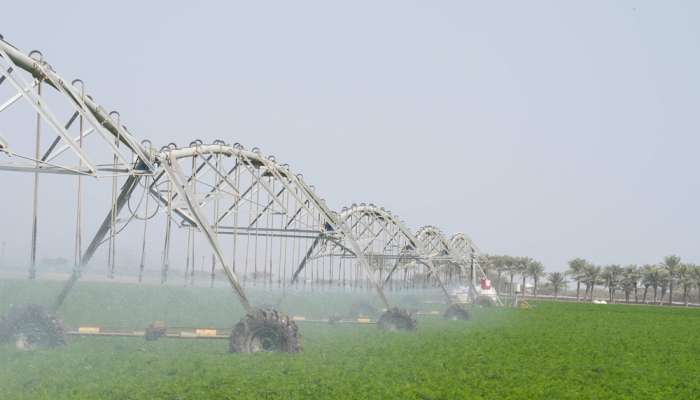
Muscat: The Ministry of Agriculture, Fisheries and Water Resources has approved over 21,000 date palm seedlings for planting in an area of more than 200 acres during the past two seasons (2023/2024 and 2024/2025).
More than 100,000 fruit seedlings of various types and varieties were also approved for planting in an area of more than 700 acres, which were distributed to eligible farmers in various governorates.
The ministry emphasised that by establishing model fields, it aims to achieve sustainable agricultural development, raise production efficiency, and enhance food security by disseminating modern agricultural technologies and introducing new and improved fruit and date palm varieties.
It also aims to support farmers by providing technical guidance and advanced agricultural technologies, contributing to improving their economic incomes in line with Oman Vision 2040.
Engineer Yahya bin Hamdan Al Saadi, Head of Horticultural Crops Department at the Ministry of Agriculture, Fisheries and Water Resources, said that the ministry is making numerous efforts to ensure the successful establishment of model fields for some trees. These efforts include providing advisory and technical services to farmers through field visits, inspections, workshops and lectures, coordinating with the Development Bank to provide some incentives and financing for agricultural projects, especially model fields, and advertising on the Tatweer platform, in coordination with the Ministry of Housing and Urban Planning, to create sites for agricultural lands under the usufruct system for date palms and fruit trees.
In addition, the ministry is partnering with other institutions such as private sector companies and the Agricultural and Fisheries Development Fund to support farmers through projects and programmes aimed at developing the palm and fruit tree sector.
Engineer Yahya Al-Saadi explained that farmers are being supported in accordance with Ministerial Resolution No. 228/2024, which sets symbolic prices as support for farmers wishing to benefit from this project.
He emphasised that palm tree seedlings and saplings are being distributed to eligible farmers in various governorates of the Sultanate of Oman with comparative advantages.
The Head of the Horticultural Crops Department explained that the source of production of tissue culture palm seedlings is the Tissue Culture Research Center in Jamah, in the Wilayat of Bahla, in the Al Dakhiliyah Governorate, which is affiliated with the Oman Agriculture Development Company.
The Centre was established in 1992 with the aim of propagating good varieties of date palms and other plants, using tissue culture technology to produce high-quality, disease-free seedlings and seedlings to support the national agricultural sector.
Meanwhile, improved fruit seedlings are produced and propagated by the agricultural research departments affiliated with the General Directorate of Agricultural and Animal Research at the Ministry.
Engineer Yahya bin Hamdan Al Saadi emphasised that the objective of the Model Fields Programme is to enhance food security by achieving a degree of self-sufficiency for some targeted crops in commercial fields, supplying the market with high-quality quantities of local date and fruit products, and providing a good and additional source of income for farm owners and their workers, in addition to providing farmers with the necessary skills and knowledge to manage and sustain these fields.
He said that the model fields are represented in the cultivation of high-quality and productive varieties that were selected and propagated by the Ministry’s agricultural research specialists. There are several varieties of date palms such as Fardh, Khalas, Bonarnja, Barni Majhool and Fuhol. As for fruit seedlings, there are several types and varieties such as Omani lemons, Adalia lemons, mangoes, figs, Mustafel, quince and others.